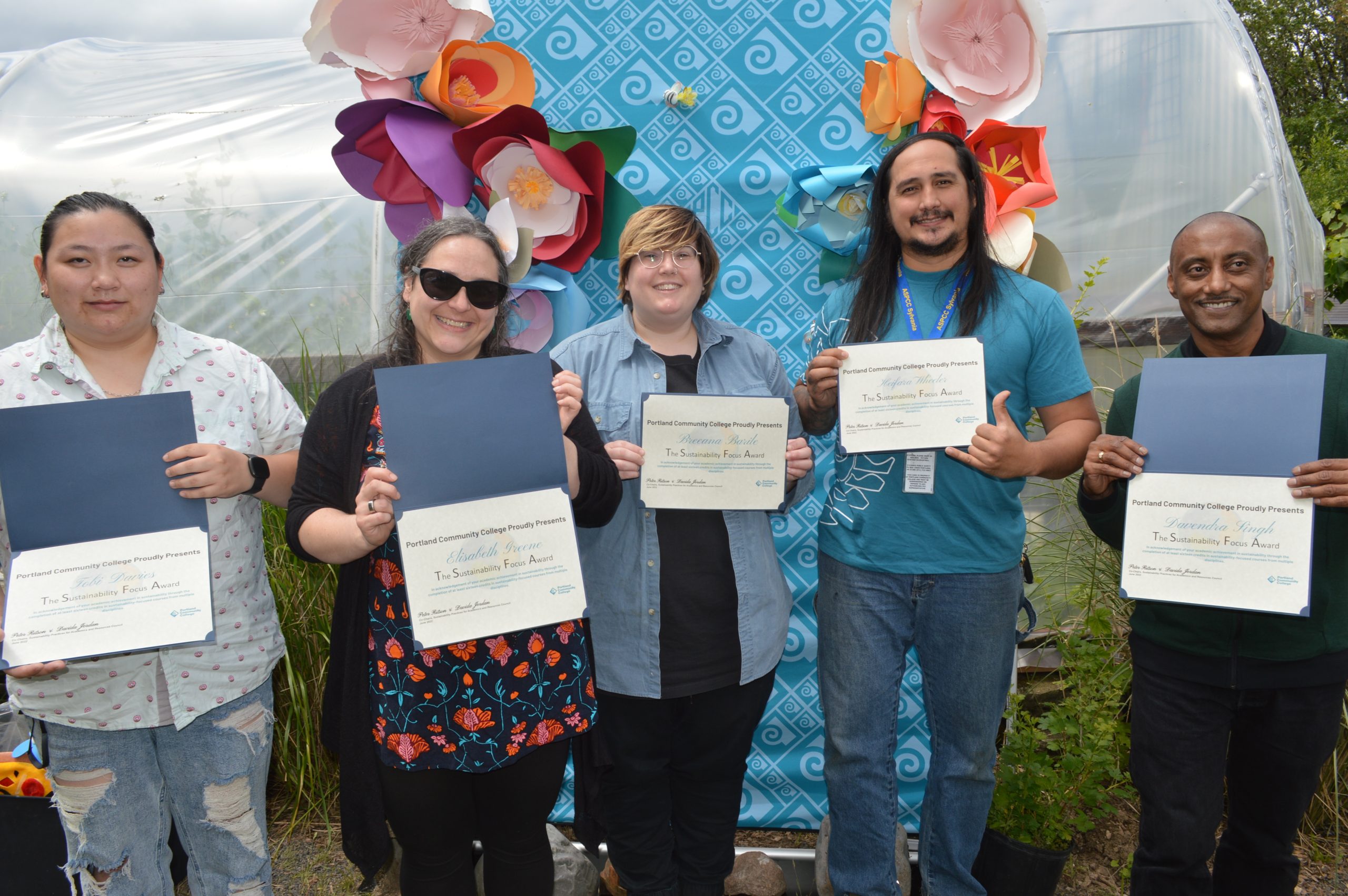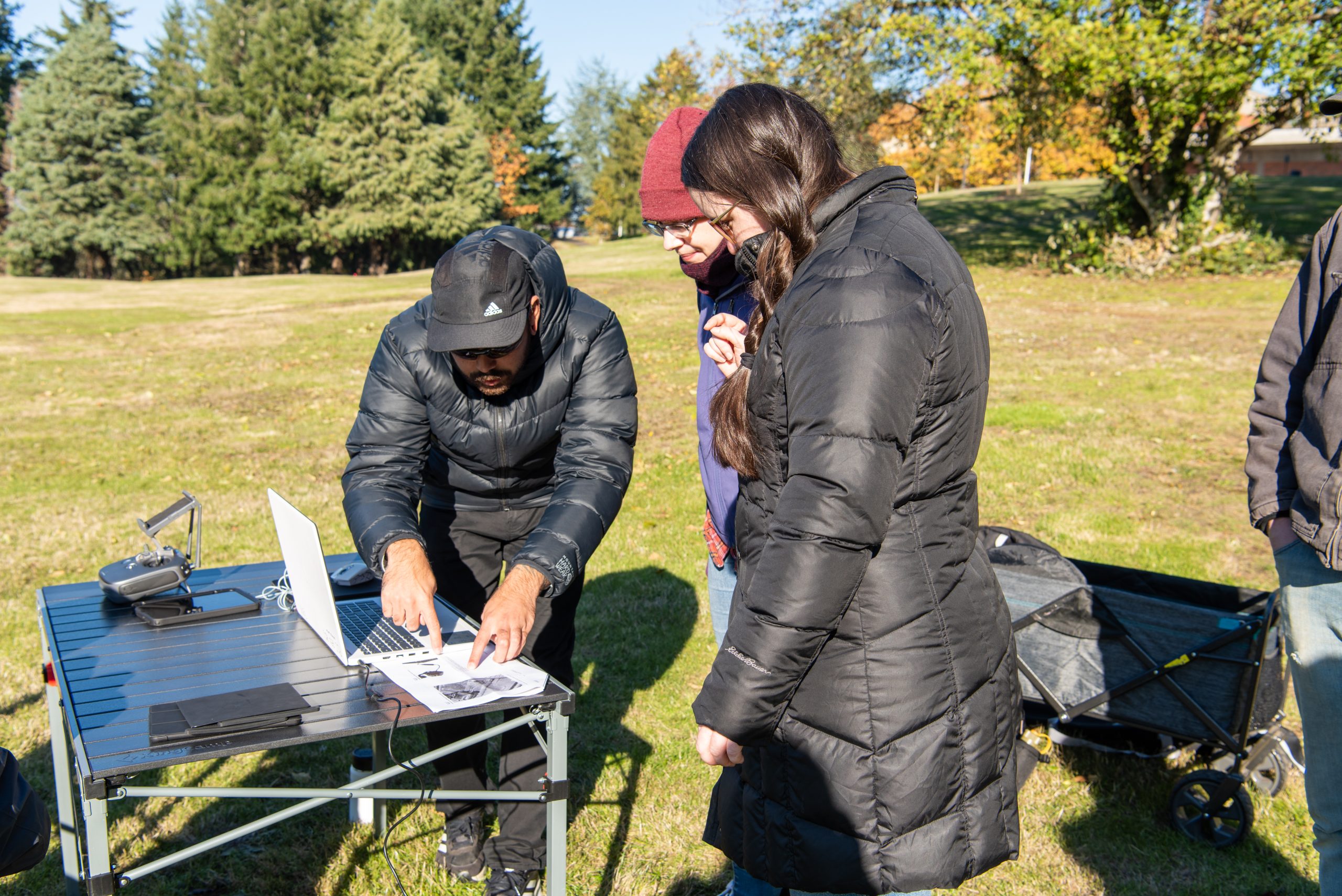Education

Educational Resources for Students
- Sustainability-related classes
- Sustainability Career & Educational Pathways
- Focus Awards
- Library Guides

Educational Resources for Faculty/Staff
- Sustainability Practices and Resources for Curriculum Council (SPARC)
- Sustainability Community-Based Learning (CBL)
- Library Guides
- Learning Gardens
Educational Resources for Students
Classes
Discover classes that include sustainability as a component of their curricula.
Find all courses for the following term at the Student Sustainability Hub.
Career & Educational Pathways
There are a number of career and educational pathways at PCC where you could pursue sustainability, a just transition towards a clean energy future, or a sustainability related field.
- Bioscience Technology (career pathways in sustainable energy production, bioremediation, biomanufacturing, and more.)
- Electronics Engineering program in Renewable Energy Systems
- Environmental Landscape Management Technology
- Geomatics (In addition to the associates degree in geomatics, PCC offers a shorter (less than 1-year) certificate program in Geographic Information Systems and as a Geospatial UAS Specialist)
- Building Construction Technology
- Electrical Trades/Apprenticeship and Fiber Optics
- Facilities Maintenance Technology – HVAC/R,
- Microelectronics Technology: Solar Voltaic Manufacturing (PCC also offers a career pathway certificate in solar voltaic manufacturing technology.)
Green Career Resources
Focus Award
Focus Awards recognize the completion of a collection of courses in an area of study. By taking the courses required for a Focus Award, students deepen and broaden their knowledge and experience in that particular area of study.
Sustainability Focus Award
The PCC Sustainability Focus Award is designed for students who are interested in exploring the interdependent social, economic and environmental pillars of sustainability (the triple-bottom-line) topics from multiple perspectives, and in increasing their course experience in this multi-disciplinary topic. Find more info on the focus award website.
Earth Science Focus Award
The Earth Science Focus Award is designed to provide an in-depth appreciation for the diverse scientific disciplines dedicated to the study of our home planet. The objective of the focus award is to provide students the opportunity to discover areas of interest and to identify potential academic tracks and career choices within Earth science. Find more info on the focus award website.
Library Guides
PCC has a number of library guides for students around sustainability and climate change.
Educational Resources for Staff and Faculty
SPARC
The Sustainability Practices and Resources for Curriculum (SPARC) Council leads the PCC effort to instill sustainability in our educational offerings.
CBL Projects
Community-Based Learning (CBL) is a teaching method that integrates reciprocal partnerships, community engagement, and critical reflection to meet institutional and course outcomes while developing individual, civic, and social responsibility. At PCC, the CBL program provides support across all disciplines by assisting faculty with community-based learning course implementation, professional development, and resources. The Sustainability Department is excited to support and collaborate with faculty to create positive learning experiences for students at PCC around sustainability challenges.
Check out Sustainability Community Based Learning (CBL) to learn more about how to work with Sustainability on a CBL project.
Library Guides
PCC has a number of library guides for staff to gather resources around how to teach sustainability and climate change in the classroom.
Learning Gardens
The Learning Gardens are an amazing physical space for hands-on outdoor learning. There is a garden at each campus as well as the Newberg Center. Schedule a garden tour, apply for a class garden bed, create a garden-related class projects and so much more. Learn more at pcc.edu/learninggardens or email learning-gardens@pcc.edu
